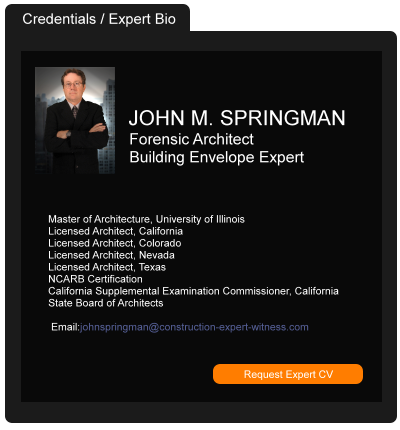Washington Builders Right To Repair Current Law Summary:
Current Law Summary: (SB 5536) The legislature passed a contractor protection bill that reduces contractors' exposure to lawsuits to six years from 12, and gives builders seven "affirmative defenses" to counter defect complaints from homeowners. Claimant must provide notice no later than 45 days before filing action; within 21 days of notice of claim, "construction professional" must serve response; claimant must accept or reject inspection proposal or settlement offer within 30 days; within 14 days following inspection, construction pro must serve written offer to remedy/compromise/settle; claimant can reject all offers; statutes of limitations are tolled until 60 days after period of time during which filing of action is barred under section 3 of the act. This law applies to single-family dwellings and condos.
Building Expert Contractors Licensing
Guidelines Seattle Washington
A license is required for plumbing, and electrical trades. Businesses must register with the Secretary of State.
Association Directory
Local # 4955
335 116th Ave SE
Bellevue, WA 98004
http://www.masterbuildersinfo.com
Seattle Washington Building Expert 10/ 10
Home Builders Association of Kitsap County
Local # 4944
5251 Auto Ctr Way
Bremerton, WA 98312
http://www.kitsaphba.com
Seattle Washington Building Expert 10/ 10
Home Builders Association of Spokane
Local # 4966
5813 E 4th Ave Ste 201
Spokane, WA 99212
http://www.shba.com
Seattle Washington Building Expert 10/ 10
Home Builders Association of North Central
Local # 4957
PO Box 2065
Wenatchee, WA 98801
http://www.nchba.cc
Seattle Washington Building Expert 10/ 10
MBuilders Association of Pierce County
Local # 4977
PO Box 1913 Suite 301
Tacoma, WA 98401
http://www.mbapierce.com
Seattle Washington Building Expert 10/ 10
North Peninsula Builders Association
Local # 4927
PO Box 748
Port Angeles, WA 98362
Seattle Washington Building Expert 10/ 10
Jefferson County Home Builders Association
Local # 4947
PO Box 1399
Port Hadlock, WA 98339
http://www.jeffcohomebuilders.com
Seattle Washington Building Expert 10/ 10
Building Expert News and Information
For Seattle Washington
James R. Lynch Appointed to the Washington State Capital Project Review Committee
COVID-19 Likely No Longer Covered Under Force Majeure
ASCE's Architectural Engineering Institute Announces Winners of 2021 AEI Professional Project Award
Sweet News for Yum Yum Donuts: Lost Goodwill is Not an All or Nothing Proposition
Index Demonstrates Increase in Builders’ Sentiment
First Circuit Rejects Insurer’s “Insupportable” Duty-to-Cooperate Defense in Arson Coverage Suit
Contractual Waiver of Consequential Damages
No Coverage Under Property Policy With Other Insurance and Loss Payment Provisions
Wall Street’s Palm Beach Foray Fuels Developer Office Rush
State Farm Unsuccessful In Seeking Dismissal of Qui Tam Case
Disgruntled Online Reviews of Attorney by Disgruntled Former Client Ordered Removed from Yelp.com
Steven Cvitanovic to Present at NASBP Virtual Seminar
National Coalition to Provide Boost for Building Performance Standards
New-Home Sales in U.S. Unexpectedly Fall to Four-Month Low
U.S. Department of Justice Settles against Days Inn
Real Estate & Construction News Round-Up (02/08/23) – The Build America, Buy America Act, ESG Feasibility, and University Partnerships
Blog Completes Fifteenth Year
Real Estate & Construction News Roundup (5/8/24) – Hotel Labor Disputes, a Congressional Real Estate Caucus and Freddie Mac’s New Policies
Congratulations to BWB&O’s 2021 Super Lawyers Rising Stars!
Construction Industry Groups Challenge DOL’s New DBRA Regulations
Contingent Business Interruption Claim Denied
NY Appellate Court Holds Common Interest Privilege Applies to Parties to a Merger
Former Owner Not Liable for Defects Discovered After Sale
Florida Court of Appeals Holds Underlying Tort Case Must Resolve Before Third-Party Spoliation Action Can Be Litigated
Landmark San Diego Hotel Settles Defects Suit for $6.4 Million
In Florida, Exculpatory Clauses Do Not Need Express Language Referring to the Exculpated Party's Negligence
Evaluating Smart Home Technology: It’s About More Than the Bottom Line
Haight’s Sacramento Office Has Moved
DRCOG’s Findings on the Impact of Construction Defect Litigation Have Been Released (And the Results Should Not Surprise You)
Architects Should Not Make Initial Decisions on Construction Disputes
San Diego Appellate Team Prevails in Premises Liability Appeal
Time is of the Essence, Even When the Contract Doesn’t Say So
New York Assembly Reconsiders ‘Bad Faith’ Bill
Policy Sublimit Does Not Apply to Business Interruption Loss
Bailout for an Improperly Drafted Indemnification Provision
Spearin Doctrine as an Affirmative Defense
GRSM Named Among 2025 “Best Law Firms” by Best Lawyers
Privity Problems Continue for Additional Insureds in the Second Circuit
One More Mechanic’s Lien Number- the Number 30
Pa. Contractor Pleads No Contest to Prevailing-Wage Charges, Pays Workers $20.7M
Contractor Disputes Report Amid Amazon Warehouse Collapse Lawsuit
Wichita Condo Association Files Construction Defect Lawsuit
Texas Central Wins Authority to Take Land for High-Speed Rail System
Duke Energy Appeals N.C. Order to Excavate Nine Coal Ash Pits
New York Appellate Division Reverses Denial of Landlord’s Additional Insured Tender
White and Williams Earns Tier 1 Rankings from U.S. News "Best Law Firms" 2021
Maria Latest Threat to Puerto Rico After $1 Billion Irma Hit
Weslaco, Texas Investigating Possible Fraudulent Contractor Invoices
Pinnacle Controls in Verano
Engineer TRC Fends Off Lawsuits After Merger


































































